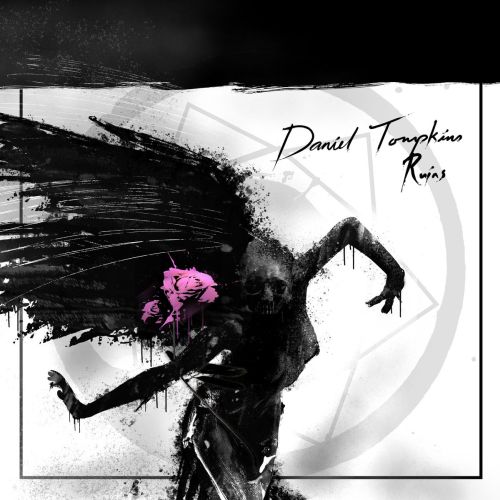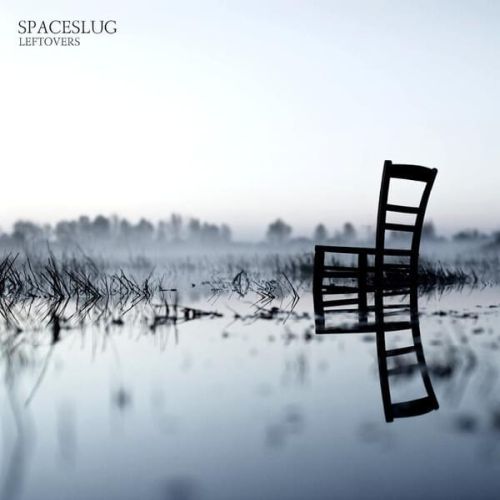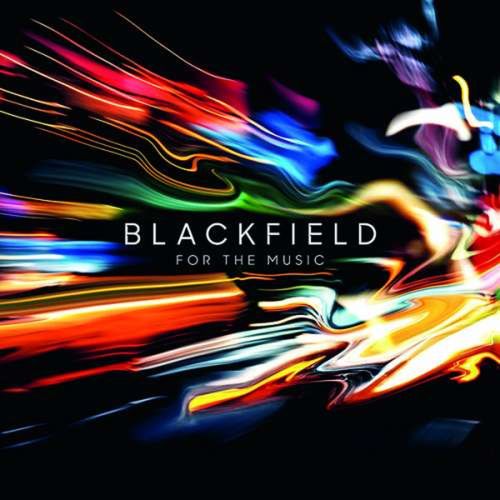Wait A Minute! This Isn't Metal! - December 2020

| Written by: | RaduP, musclassia, ScreamingSteelUS |
| Published: | January 16, 2021 |
Wait A Minute! This Isn't Metal! - December 2020
Metal Storm's outlet for nonmetal album reviews
The place where we'll talk about music without growls or blast beats
unless they still have those but still aren't metal
unless they still have those but still aren't metal
We here at Metal Storm pride ourselves on our thousands of metal reviews and interviews and article; metal is our collective soul and passion, which is why we bother with this junk. That being said, we'd be lying if we stuck to our trve-kvlt guns and claimed that metal is the only thing we ever listen to. Whether we want to admit it or not, we do check out some other stuff from time to time; some of us are more poptimistic than others, but there's a whole world out there aside from Satan-worshiping black metal and dragon-slaying power metal. We do already feature some nonmetal artists on our website and have a few reviews to back them up, but we prefer to limit that aspect of the site to those artists who have been a strong influence on the metal scene or who are in some way connected to it. This article series is the place for those artists who don't matter to metal in the slightest but still warrant some conversation - after all, good music, is good music, and we all know metal isn't the only thing on this planet for any of us.
Down below, you might find some obscure Bandcamp bedroom projects or some Billboard-topping superstar; as long as it ain't metal and the album itself isn't a best-of compilation, it fits. Obviously, we're certain that not everything will be for everybody (you guys can be viciously territorial even when metal is the only thing on the menu, and we're all supposed to like the same things), but we do hope you find at least one thing that you can enjoy, instead of just pointing and screaming in horror "Not metal!" as if that would be an insult.
Here are our previous features:
November 2020
October 2020
September 2020
And now to the music...
Ruins is the second solo album by Daniel Tompkins (most notably of TesseracT, but also White Moth Black Butterfly); however, according to Tompkins, it's also a re-imagining of his debut solo album Castles. That album was more of a pop/electronic effort, but Ruins is a darker, heavier spin on the same music; whilst similarities between the original and reimagined versions (such as "Castles" and "Ruins") remain, this sees Tompkins lean closer to his work with TesseracT. The music fluctuates between electronic parts such as on Castles, alternative rock and even portions of djent, all of which appears on "Ruins".
Tompkins is a highly accomplished vocalist, as evidenced by both his work in TesseracT as well as collaborations with the likes of Earthside, but I've not really clicked with his albums with TesseracT. In contrast, I rather enjoy Ruins; the gradually intensifying atmosphere of djent-heavy "Stains Of Betrayal", the subdued moods of "A Dark Kind Of Angel" and the electronics/guitar trade-off on "Empty Vows". There's also some nice guest appearances by Plini on "Wounded Wings" (probably the best song here), and by Matt Heafy of Trivium on closing song "The Gift". I wouldn't necessarily there's parts of this album that make a huge impact, but it's very likeable throughout.
Bandcamp | Apple Music | Spotify
by musclassia
Polish stoner metal band have developed a habit of a new album every year since their debut in 2016, Lemanis; they've maintained this into 2020, but this time, the new release is rather different. For one, Leftovers is an EP rather than a full-length album, but more significantly, it's not a stoner metal album. Instead, Leftovers features acoustic and electronic music. The EP was recorded during the first lockdown period, which may well have influenced either the ability to record heavier music, or their motivation to write such music. However, due to the chilled-out nature of some of their already released music, the acoustic sound doesn't actually sound like such a drastic departure for Spaceslug; "Trees Of Gold" from last year's Reign Of The Orion was perhaps a prototype for where they decided to go here.
The natural feel is certainly helped by how seamlessly the foggy, lax vocals that have featured on their music prior to now slot into the softer music recorded here. The looping 'all we know, we know' vocals on opening track "Wasted Illusion" feels right at home, although this song is admittedly the one that feels closest to previous material (particularly "Trees Of Gold") due to its slick, chilled groove. The more stripped-down and atmospheric vibes of the title track aren't quite as convincing; the EP generally moves further away from what one might expect from past releases as you go further into the tracklist. The electronics aren't a dominant feature here; this is an acoustic album with some eerie synths that pop up from time to time, but when they do (such as the meandering electronics on the aforementioned "Wasted Illusion"), they work nicely. Ultimately, Spaceslug generally manage to retain what makes them appealing on this unplugged effort, but I'm not sure they pull it off in a sufficiently compelling way to make this sound worth exploring for more than an occasional song or so on future records.
Bandcamp | Apple Music | Spotify
by musclassia

Sigur Rós, Hilmar Örn Hilmarsson, Steindór Andersen
& María Huld Markan Sigfúsdóttir - Odin's Raven Magic
[Modern Classical | Post-Rock]
The 2010s saw Sigur Rós losing two members, remaining a core of two members. Their releases since 2013's Kveikur have been a series of overlooked ambient albums or repurposing of older material. Odin's Raven Magic is also older material, but presented as it was performed in 2004. In collaboration with a few other musicians, poets and sculptors, Sigur Rós adapted an old Icelanic poem of controversial authenticity, into an orchestral arrangement. Hrafnagaldr Óðins may have been composed somewhere in the late middle ages or later, but it is written in accordance to poetic Edda style, and it tells the story of a feast in Valhalla between the gods, in which ominous signs of the end times start appearing.
Odin's Raven Magic feels weird to have now, because the Sigur Rós here is not the Sigur Rós of 2020, but the one of 2002 and this is music that was meant to be consumed in a live setting. Also this is not a Sigur Rós album, they just happen to be among the people who composed and performed this piece, but their post-rock sound is used sparingly on the record ("Dvergmál" has the most straightforward post-rock section), instead it's more of an orchestral backing to a poem, where multiple vocalists take different roles in its story. It's a beautiful album nonetheless, one of a certain cultural significance that feels beyond what post-rock usually handles.
Bandcamp | Apple Music | Spotify
by RaduP
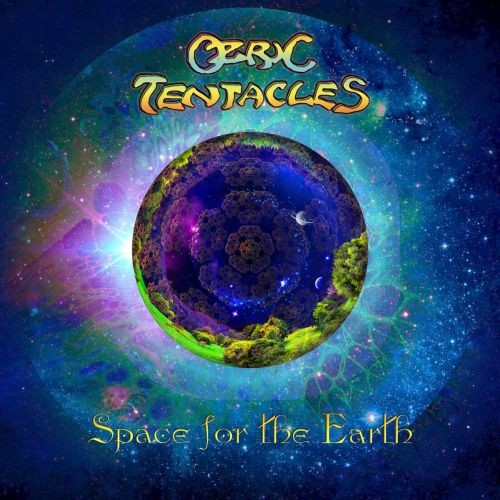
Ozric Tentacles - Space For The Earth
[Space Rock]
Sometimes I wonder what kind of distorted impression I get of a project when I encounter it very late on in its journey. Ozric Tentacles is nearly 40 years old, and Space For The Earth is album number 15 in their extensive career. As such, I don't know how much me liking this album informs me about the rest of their career - do fans consider this just 'more of the same', is this a big stylistic departure, is this a late-career highlight? All I know is that it is a tremendously enjoyable listen, the sonic equivalent of floating on a cloud above a technicolour landscape. The group are tagged as psychedelic rock and space rock, and I can definitely see the psychedelic part. The music I've heard that this most reminds me of is the wonderful Messages From The Resonator album by Globular & Geoglyph that I covered in this series back in the spring; that album was electronic-only (the genre tag was 'psybient'), and there's a lot of similar electronics being used here, just with some rock added in there as well, albeit very chilled, light jam-like rock. This combination produces something as warm and welcoming as Messages From The Resonator, but also with some cool rock flair to go with it.
A great example of this is closing track "Harmonic Steps": between the bouncing layers of electronics, shimmering sounds that float through the mix and the dainty acoustic guitars, the song forms a perfect groundwork for project founder and sole surviving member Ed Wynne to lay down some slick guitar solos, which work perfectly in tandem with the rest of the music. The rock does feel like the element that is added to the psychedelic electronica, rather than the other way round, but if anything that makes it even more to my liking. The constantly morphing, oscillating, fluctuating sounds that are densely layered in each song produce an everchanging sea of tranquillity that just radiates good vibes; Space For The Earth is a very fun and positive record, managing to come across as both peaceful and energized, and I heartily recommend it, especially to anyone that enjoyed the Globular & Geoglyph record when I reviewed it earlier in the year.
Bandcamp | Apple Music | Spotify
by musclassia
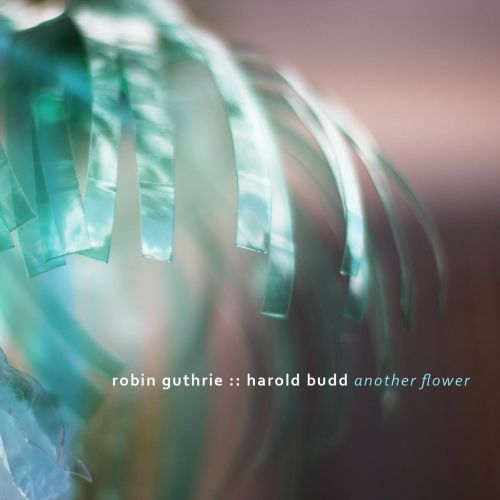
Robin Guthrie & Harold Budd - Another Flower
[Ambient | Modern Classical]
Ambient music has a pretty long history, being one of the most primal forms of music that specifically sees music as a function, in the same way that dance music does, but for a different function. Though it dates back even further, the genre would properly take shape in the 70s through the work of people like Brian Eno, Klaus Schulze, Edgar Froese, and also Harold Budd, who even collaborated with Brian Eno on several occasions, including on the 2nd installment of the Ambient series. But Harold Budd also often collaborated with Robin Guthrie, of Cocteau Twins fame, from as far back as 1986's The Moon And The Melodies. Though the pair would collaborate much more often in the new millennium, that would be cut short by Budd's recent passing in December of 2020.
Another Flower is an unearthing of a 2013 recording between the two, so it's possibly not the last time these two have worked together and there may still be a fair share of material that remains unreleased that has been recorded since. In a way, Another Flower isn't really prime ambient in the way that both of these masters are capable of delivering, and you can quite guess that there's a reason that this wasn't released in its time. Another Flower doesn't really feel unpolished, but rather a bit undercooked compositionally. And yet, I'm so glad this was released, with the tragic component of Budd's passing, it makes the warm guitar and synth soundscapes of Another Flower feel even more bittersweet and peaceful.
Bandcamp | Apple Music | Spotify
by RaduP
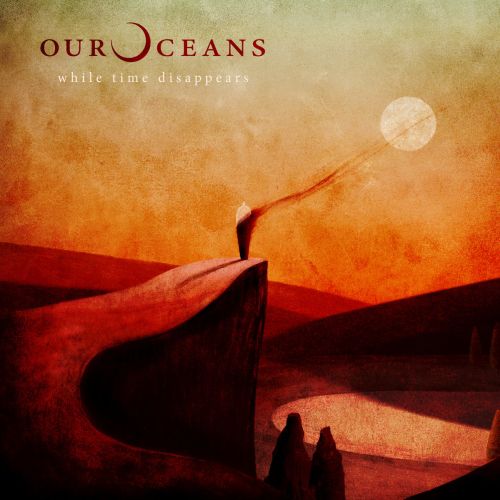
Our Oceans - While Time Disappears
[Progressive Rock]
Fans of Dutch instrumental prog group Exivious and/or tech-death pioneers Cynic should be familiar with the personnel behind prog rock band Our Oceans; all three members were in the final version of Exivious, whilst bassist Robin Zielhorst and guitarist/vocalist Tymon Kruidenier were in the Floridian group (with both featuring on Re-Traced). With this kind of pedigree, expectations should be high for While Time Disappears, the sophomore release from Our Oceans, and I imagine those expectations will be mostly met, as it's a very good heavy prog rock album.
By heavy prog rock, I mean that it leans into metal territory at times; however, that is more the minority of the album. Just as much as it leans towards prog metal, if not more so, it moves in math territory, or quirkier prog along the lines of Thank You Scientist or The Mars Volta, whilst the vocalist sounds very similar to the guy from Corelia in my ears. "Unravel" opens with lurching, rhythmically irregular heavy chords, but the main body of the song is more based around delicate clean guitar and slick, jazzy drum grooves, a brief burst of noise and screams midway through aside, and the next few songs are for the most part gentle, apart from some more voluminous climaxes. The second half of the album pushes the technicality or songwriting ambition more, whether it's the math rock of "Face Them", the moody synths of the lengthy, meandering "Your Night, My Dawn", or jazz elements in closer "With Hands Torn Open"; nevertheless, the slickness of the writing and musicianship retains its appeal across the whole record. A really nice entry into the modern prog oeuvre.
Bandcamp | Apple Music | Spotify
by musclassia
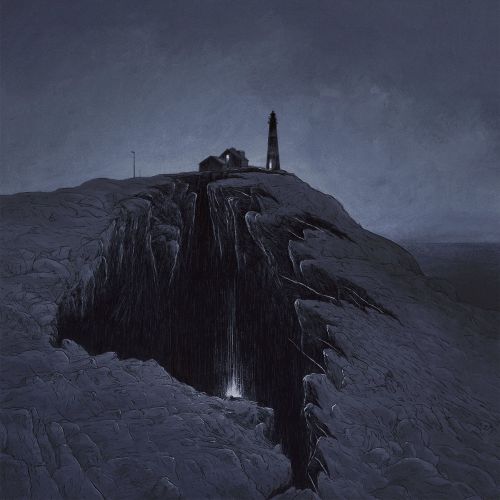
Black Wing - No Moon
[Darkwave | Post-Industrial]
Do you happen to like both Have A Nice Life and darkwave? Well then you're in luck, because Dan Barrett of Have A Nice Life and Giles Corey also has a darkwave project in the form of Black Wing. Obviously there's a lot of the usual Have A Nice Life-isms that translate pretty neatly into the darkwave sound, bringing its fair share of drone and post-industrial soundscapes, that make it somewhat of a more electronic version of that sound, sometimes feeling closer in spirit to their older records than Sea Of Worry did as a whole. In a way, Giles Corey is the analogue version and Black Wing is the digital one.
"Bollywood Apologetics" reeks of a darker Depeche Mode. "Always A Last Time" is brooding and minimal. "Vulnerable" is a dark left-turn abrasive soundscape. The 13-minute finale, "Twinkling", oozes of "Earthmover". The whole think feels like the gloom of isolation and the realization that this is all there is. Dan can still write lyrics so personal and yet so universal that you can't help but feel stupid in the face of it all with him, wondering if we're wasting our lives. It's as if this thing sunk us all lower. But if the isolation brought Dan into doing more dark crooning electronic music with industrial soundscapes and pop sensibilities, we can only be grateful.
Bandcamp | Apple Music | Spotify
by RaduP
Steven Wilson has been moving further and further into both pop and experimental musical directions in the decade since he left Porcupine Tree to embark on his solo career. Whilst there were definitely rock songs on To The Bone, there were also several art pop cuts, and the singles released thus far for impending album The Future Bites point towards a further expansion in this direction. I'll be honest, the songs I've heard so far that will feature on this new album haven't inspired me with much enthusiasm, which means that I'm quite surprised that The B-Sides Collection is actually mostly rather likeable.
You'll get no points for guessing that this is a collection of B-Sides from the Future Bites recording sessions, comprising two new songs, a Lonely Robot cover ("In Floral Green") and a remix by Tangerine Dream of "King Ghost" from the upcoming album. Of the songs here, my favourite is opening track "Eyewitness", an up-tempo synth-pop track with plenty of energy; "More Than A Fever" is more sedate, but still pleasant with its synthwave-style synth sounds. The Tangerine Dream remix is unsurprisingly lush and rich in sound, leaving the cover, as well-done as it is, as my least favourite track here. The quality of all the songs here, however, leaves me more hopeful for The Future Bites, as surely the B-Sides can't be out the main event?
Apple Music | Spotify
by musclassia
Steven Wilson is just as busy as ever by the looks of it; in addition to dropping The B-Sides Collection in December prior to his next solo project album is released in January 2021, he also has a new Blackfield album for the world, with this being the sixth full-length release from his collaborative project formed with Aviv Geffen twenty years ago. Wilson is not the star here, however, as he only provides lead vocals for 3 out of 9 tracks on For The Music. To be honest, my favourite songs here are those that feature Wilson in a more prominent role, rather than those with Geffen taking on solo vocal responsibilities; the title track is simple but very catchy, whilst "Falling" has some Porcupine Tree vibes to its lush soft rock.
I've dabbled with Blackfield before, although the last album I can remember hearing from them is 2011's Welcome To My DNA; the soft rock, acoustic guitar ditties and more upbeat songs have generally worked nicely for me in the past, probably in large part due to the sonic overlap with Porcupine Tree/Steven Wilson songs and the moving vibes Wilson can produce at his best. Less appealing to me is Geffen's voice, which does have a bit of a nasal quality to it that I can find slightly irritating on songs such as "After All", despite the serenity surrounding it. It's not a dealbreaker by any means, and at times it works very nicely, but it's probably the aspect that clicks least reliably for me. That aside, although For The Music is a rather brief return for Blackfield (despite being marketed as a full-length album, it barely cracks the half-hour mark), it's a perfectly enjoyable one, so I'd be surprised if existing fans found much to complaint about, except perhaps the length.
Apple Music | Spotify
by musclassia

Moor Mother & Billy Woods - Brass
[Abstract Hip Hop | Experimental Hip Hop]
Both Moor Mother and Billy Woods have been getting pretty steady coverage in our series since we started, either for their solo stuff or stuff they collaborated on, and even though them eventually collaborating was something that seemed bound to happen eventually, and it did happen with Moor Mother appearing on the latest Armand Hammer, but having a full album of that collaborative spirit in such a wild time feels like a real blessing. And it is a collaborative album indeed, with a wide array of guest rappers and producers also adding their own ingredients to the pot, from Elucid and Navy Blue to Algiers' Franklin James Fisher among others.
The whole album feels really abstract, trippy, and airy, with minimalist, murky, and genuinely eerie production that dips into jazzier territories, but never settling for being groovy with that. Instead, it's unsettling. As it should be. The flows combine with the zoned out production with intimidating but slow-paced delivery of lyricism by two of the best wordsmiths of our time. The two kind of meet it the middle in terms of how much they sound like spoken poetry or hip-hop, but they make Brass into an album that isn't very complicated in concept, but still feels like it needs a lot of time to digest and pick apart. There's nothing about it that doesn't stand out in some way or another.
Bandcamp | Apple Music | Spotify
by RaduP
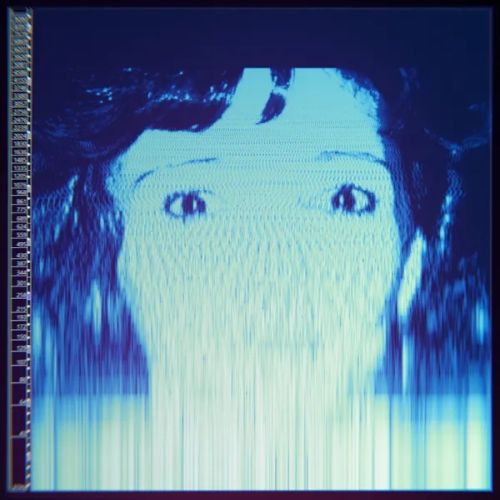
The Avalanches - We Will Always Love You
[Neo-Psychedelia | Nu-Disco]
The Avalanches have a pretty unique sound, being probably the one act to popularize the plunderphonic style to a wider audience back in 2000 with their debut album, Since I Left You. A 16 year gap would come before The Avalanches would follow that up, to somewhat shaky success. We Will Always Love You is still different enough from 2016's Wildflower, but also brings a bit of their debut in the mix to create a dreamlike 70 minutes long soundscape of psychedelic electronic pop with a lot of disco, soul and trip-hop undertones. Probably the widest palette of sounds that The Avalaches ever approached.
If it reminds me most of anything, it is the latest Oneoterix Point Never, which also had a similarly nostalgic and psychedelic dreamlike quality to it, as if it is pop music that moves with the logic of dreams. Both artists come from plunderphonics backgrounds so it's no surprise that there's some overlap, but We Will Always Love You feels a bit broader in scope, emotion, and guest roaster (everything from Blood Orange, MGMT, and The Smiths' Johnny Marr to The Clash' Mick Jones, Weezer's Rivers Cuomo, and The War On Drugs's Kurt Vile, and many more). Not all of the album's runtime properly sustains the momentum, but the continuous flow of this album is probably half of why it sounds so dreamlike.
Apple Music | Spotify
by RaduP
I saw Pharaoh Overlord support Sleep on their 2019 tour prior to going on hiatus, and whilst I don't really remember their performance, I do remember them seeming like a relatively normal fit for supporting a stoner doom band, and Wikipedia backs me up by tagging their style as stoner rock, krautrock and experimental rock, amongst other things. Therefore, I was somewhat surprised when I saw 6 tagged as synthwave; surely I would've noticed if Sleep had been supported by something so starkly different? It appears this is a new direction Pharaoh Overlord have explored, inspired by dabbling with synths on previous album 5 and lunging headfirst into this new range of possibilities. So yes, 6 is a synthwave record, opening with fairly classic synth pulses that fulfil the synthwave requirement of sounding like they'd be right at home serving as the soundtrack to a cyberpunk anime. But wait, why are the vocals so harsh?
6 may be synthwave, but Pharaoh Overlord decided to push the experimentation further by combining these electronic soundscapes with the distinctive roars of Isis/Old Man Gloom/Sumac frontman Aaron Turner. According to info I could find online, Turner was inspired by the work of acts such as Beherit in combining electronic music with metal vocals; although it's not a novelty, it's a strange approach given how conventionally synthwave the music sounds otherwise. It's not necessarily a mismatch (although it does sound a bit strange on the otherwise upbeat "Tomorrow's Sun"); the way the vocals are mixed in means that they don't completely overpower, and there's been enough flirtation with the metal and synthwave scenes for a combo like this to not come across as disjointed. However, it is going to be a potential barrier for those synthwave fans that don't share a love of metal, because I feel like vocals aside, this is a very competent effort for the style, offering an enjoyable spin on the genre that doesn't sound like a complete copy of Perturbator or Carpenter Brut. "Path Eternal" has that signature cool forward momentum of the best songs in the subgenre, whilst something like "Arms Of The Butcher" stretches the boundaries a bit with some more eerie sounds and layers included in the mix. "Blue Light Hum" is also a successful attempt at writing a long-from track in this style, running close to the 15-minute mark without losing much momentum.
Bandcamp | Apple Music | Spotify
by musclassia
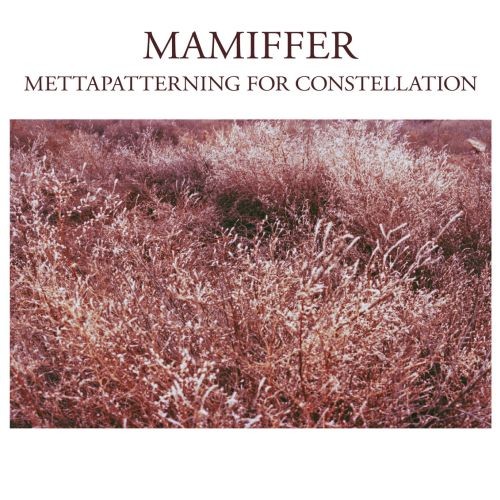
Mamiffer - Mettapatterning For Constellation
[Modern Classical | Minimalism]
Mamiffer is the main project of Faith Coloccia, featuring her spouse and contributor Aaron Turner, who you may know from Isis, Old Man Gloom and Sumac. Though Mamiffer's music has dwelled between post-rock and ambient ever since the project's 2008 debut, Mettapatterning For Constellation fits closer to a modern classical piece, as it is less of an album and more akin to two recordings of the same compositions, composed in 2016. The first one was performed live by the Spółdzielnia Muzyczn ensemble for the Sacrum Profanum Festival in 2017, for which the piece was commissioned to, while the second one is a home recording by Faith and Aaron.
So, once again we have a case of older material that is just now being released, as seems to be a pattern for a lot of the releases here. There are some obvious differences between the two recordings here, the most striking one being the change in the number of personnel involved. I'm not sure if the placement of the home recording after the final performance is the best move, since the energies that the recordings create is quite opposing, even though both of them feel pretty vital. The electroacoustic elements are more pronounced in the second recording, creating a rawer more eerie feeling compared to the livelier live version, but the minimalism of both of them brings the common red thread between them, regardless of how many people are performing it.
Bandcamp | Apple Music | Spotify
by RaduP

Ichiko Aoba - Windswept Adan
[Chamber Folk | Singer/Songwriter]
Ichiko Aoba is a Japanese singer/songwriter that has been steadily releasing stuff during the 2010s. I hadn't heard of her before this release, but then again I don't listen to a lot of Japanese singer/songwriters anyway. And perhaps whatever similarities I find between her and something else like Fishmans might be more confirmation bias rather than actual cultural influence, so take what I say with a grain of salt. But I definitely feel the same weightlessness and mythic quality to the sound of both artists. It's a bit amazing that Ichiko's stuff before Windswept Adan was even more stripped back than this, considering just how subtle and quiet Windswept Adan is.
There's a bit more chamber folk here, in the sense that the instrumentation is a bit broader and the songwriting more dynamic, but the basis of the music is still Ichiko's warm and mellow vocals. The entire album has a very spiritual quality to it, and once again, not sure how much of it is confirmation bias, but spiritual in the naturalistic way you would see in some Ghibli film. So it's on the rather fantastical side of things, keeping the atmosphere lush, warm and ethereal. Windswept Adan does this with a bit more strings and synths, so it's quite like a new age version of early Belle & Sebastian. It's music so fragile you tip toe around it just to make sure it doesn't break.
Bandcamp | Apple Music | Spotify
by RaduP
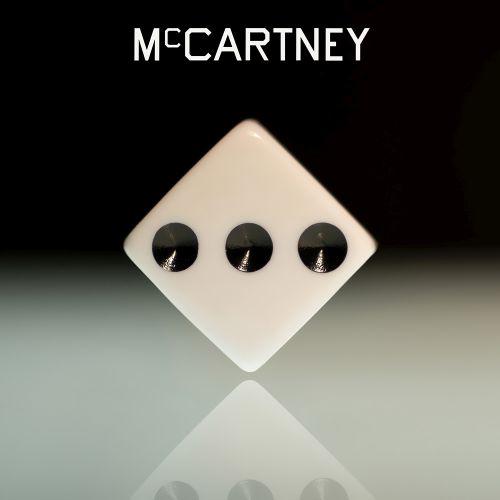
Paul McCartney - McCartney III
[Pop Rock | Art Pop]
Another case of a trilogy being completed years after the first two, in this case McCartney III comes forty years after McCartney II and fifty years after McCartney. There must be something special about this album if Paul McCartney decided to give it the honor of naming it as such. But contrary to that, McCartney III doesn't feel like an ambitious record. It's not a hit album, it's not experimental, it's not very celebratory. But it's still really endearing simply because of how much it finds Paul McCartney content with who he is and with nothing left to prove. And after a 60 years long career, perhaps that's the best type of album to have.
There are a few songs here that might fit radio play, like "Slidin'", which is still far from the radio pop singles you would find on most McCartney albums, but for the most part this is an album that feels like it's on the more intimate and personal side. The 8 minute long "Deep Deep Feeling" might be the best example of that. Overall, due to the "made during quarantine" nature of it, it feels really scaled back, with most of the album being performed solo, that only makes this deserve its title even more. Even if the songs don't feel really that vital, McCartney continues to show why he is considered one of the best songwriters of all time, even if the need to prove that has long passed.
Apple Music | Spotify
by RaduP
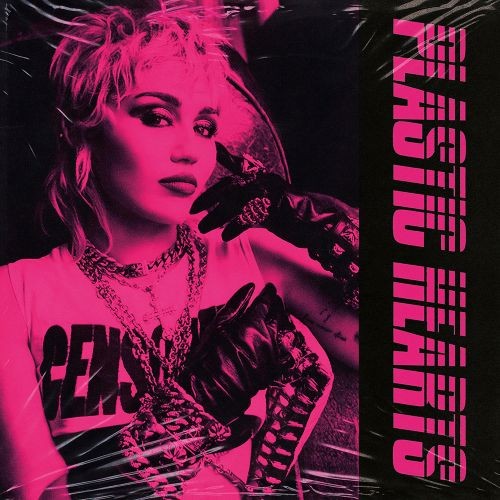
Miley Cyrus - Plastic Hearts
[Pop Rock | Synthpop]
2020 sure was a weird year. Out of all the things that happened, I'm still baffled that Miley Cyrus released an album that I enjoyed. Sort of. Plastic Hearts is far from a masterpiece, and part of it reeks of the same feeble attempts at rock music that Machine Gun Kelly had. But something about it is pretty endearing. For an artist that spent her whole career being either too bland or too raunchy for her own good, her best moment so far was going balls to the walls experimental in her "sort of collab" with Flaming Lips, even if that kinda failed horribly. So now a rock album? Once again... sort of.
Miley Cyrus has a pretty good voice, and a pretty raunchy personality, but most of what she'd done so far didn't seem to properly capitalize on that, which is what Plastic Hearts has going for it. The retro vibe does its fair share of carrying the album, but it only does so because of Miley's qualities. Features from Dua Lipa, Billy Idol, Joan Jett and Stevie Nicks only work to the album's benefit, even if it loses a bit of its raw quality, becoming a bit too polished and... uh plastic? But for what it is, it's pretty catchy, takes cues from 80s pop and rock, bits of disco and alt rock thrown in as well, but would've been much better without those awful covers.
Apple Music | Spotify
by RaduP

Kid Cudi - Man On The Moon III: The Chosen
[Pop Rap | Trap]
So I guess this is the conclusion of Kid Cudi's revival. Having some fantastic records in the late 00s, specifically the first two installments of what is now the "Man On The Moon" trilogy, Kid Cudi didn't really keep the quality up for the next few releases of his, even is his alt rock experiments were kind of bold although pretty misjudged. 2018 saw his collaboration with Kanye West under the Kids See Ghosts moniker, which arguably the best thing he had done since his debut. So to get even more in line with the quality of the older records, this one continues the trilogy of the first two albums, while also bringing back a lot of its producers. Plus despite being divided in 4 "acts", it doesn't pass the hour mark.
The results are pretty alright, even if there's still a few duds in the tracklist ("Elsie's Baby Boy (Flashback)" comes to mind). Probably the biggest aspect of this album is how strong the Travis Scott influence is on this record, which is ironic considering how big of an influence Kid Cudi was on Travis in the first place. The psychedelic trap sound has somewhat of a unique Cudi spin here though, for better or worse, with a lot of it sounding either more cosmic or more melancholic. You can kind of tell that this is a Cudi who is ten years older, so there was some maturation to the sound, while keeping the emphasis on creating on a vibe. I can't say that it always appeals to me, and maybe I like it most for the Phoebe Bridgers feature, but this exceeds what I would've expected from a Cudi album in 2020.
Apple Music | Spotify
by RaduP

Taylor Swift - Evermore
[Indie Folk | Chamber Pop]
As it was in its creation, in its essence Evermore is a natural progression from Taylor Swift's previous album, Folklore; released in the same year under the same circumstances, with the same writing partner (The National's Aaron Dessner) and the same low-key, homespun feeling, Evermore is in every way a counterpart, a sequel, whatever you want to call it, and it is clearly due to a continuous flow of inspiration. Swift wears a coat of many colors in her capacity as a world-famous pop artist, but this new guise - the autumnal sprite of misty forests and crestfallen indie folk - is one that she has slid into with not only professional ease but impeccable timing. With the world in isolation, it's only appropriate that one of the most visible and marketable musical acts of our time would leave behind the clubs, the stadia, and the awards ceremonies to don a wool sweater and putter about the woods for a while.
This melancholy folk-pop, a delicate balance of frigid apathy and morose sympathy, is not a return to Swift's pop-country roots, nor is it exactly an embellishment of her balladic tendencies, and despite enthusiastic labeling by fans (and skeptics), any Taylor Swift album is much too glamorously modern to swing the truly rustic aesthetic that the semi-ironic "cottagecore" designation suggests; Evermore is still meticulously dubbed, garnished, and polished, with a persistently discernible beat and a depth of sound that could easily be rearranged to fill an arena. I might even venture to say that Evermore contains some more complex compositions and production than Folklore, as if Swift and Dessner have really fallen into lockstep with each other. Yet Evermore, just like Folklore before it, holds tightly its corporeality, staying rooted in the mood-heavy acoustics of softly sung stories; it's indie, it's airy, it's light, and it's free, but these songs have an earthy feeling that perhaps betrays the circumstances of their writing in quarantine. "no body, no crime" in particular stands out as one of Swift's greatest accomplishments in songcraft, and taken together with Folklore, Evermore represents another side to Taylor Swift that few might have expected her to turn to.
She still won't be collaborating with Emma Ruth Rundle any time soon, but I can't help but think that we're one forest-themed photoshoot away from a hand-numbered, cassette-only EP of Agalloch covers.
Apple Music | Spotify
by ScreamingSteelUS
And that was it. You've made it through still alive. Congrats. See ya next month.
Comments
Comments: 5
Visited by: 81 users
| musclassia Staff |
| Bad English Tage Westerlund |
| RaduP CertifiedHipster Staff |
| Milena gloom cookie Staff |
| Troy Killjoy perfunctionist Staff |
Hits total: 2579 | This month: 28




